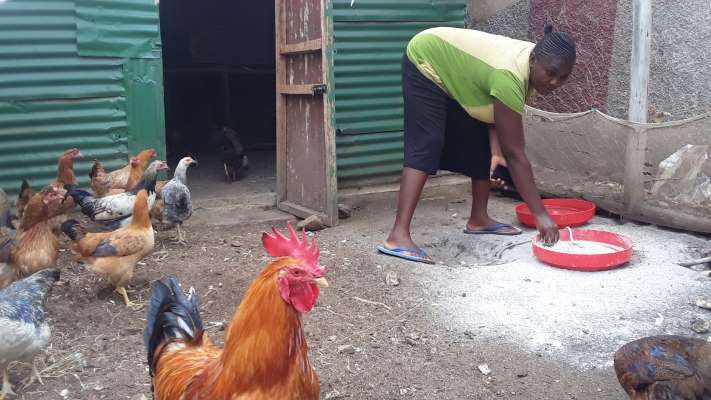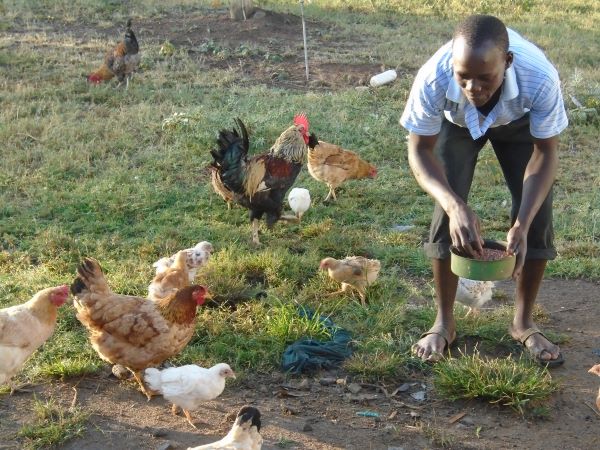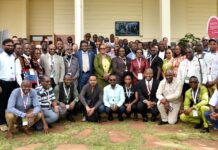The Biden Administration has been using money from the American Rescue Plan to help build small meat processing plants. The purpose is to increase competition and help prevent the gains from meat processing to flow to the handful of vertically integrated transnational companies that dominate America’s meat industry.
In Kenya, there are efforts to prevent this extreme level of concentration before it happens.
As Kenya—and much of Africa—urbanizes, and fast food chains expand in Nairobi and other cities, the chicken industry is going the way of that in the US. Large corporations have built industrial supply chains, complete with contract farmers, battery cages and poultry bred to supply extra large amounts of breast meat.
Kitui County, in eastern Kenya, is populated by family farmers. Like farmers elsewhere in Kenya, those aqin Kitui are often approached by corporations to raise poultry under contract. The Kitui Development Center (KDC) has been helping family farmers successfully run a cooperative to raise chickens under humane and sustainable conditions. The cooperative is owned and controlled by the farmers.

KDC provides community-based trainers and community health workers to ensure humane conditions and animal and farmer health without widespread antibiotic use. The cooperative has also developed ways to efficiently gather and use household food waste to supplement other organic feed. Preventing the introduction of unnecessary antibiotics and the efficient use of household food waste reduces input costs and increases profits for farmers.
Crucially, KDC also provides access to a processing facility so farmers capture income and profit along the value chain. Farmers have learned marketing techniques that enable them to sell processed chicken to stores and restaurants in local communities. Profits are used to expand output and learn more sophisticated business skills. Farmers earn profits and communities have a steady supply of healthy and affordable protein.
The KDC poultry value chain is a model of community-based livestock production based on environmentally sustainable methods. Its success means family farmers can resist the short-term economic incentives to become part of an industrial supply chain.
KDC was formed with assistance from World Neighbors, a global development organization based in Oklahoma City.








